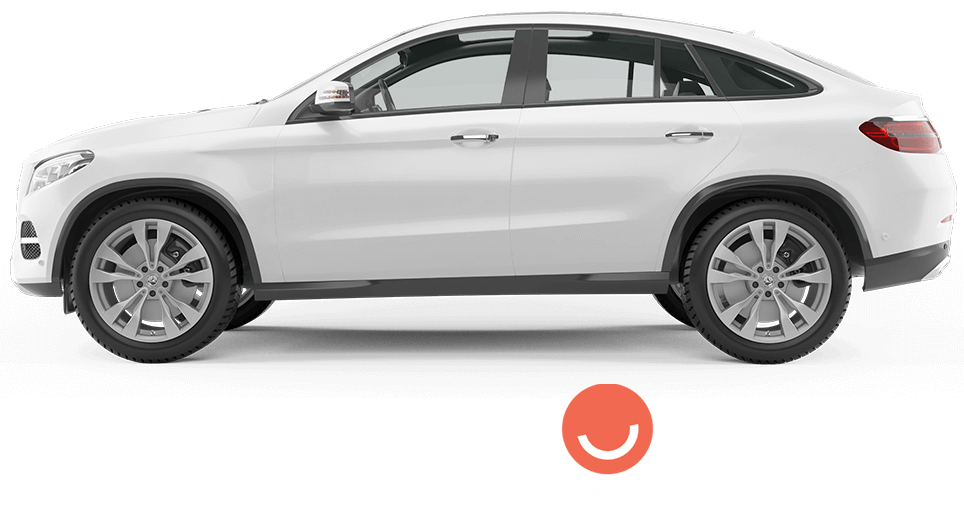What car can I afford?
The car that you can afford will depend on your salary, disposable income, financial circumstances, and car running costs.
Whether you’re buying your first or seventh car, it’s undoubtedly one of the most exciting purchases you can make.
But it’s also a large purchase, even if you choose a used car, and if you decide to take out a car finance loan, you could end up borrowing thousands of pounds to buy your new car.
Buying a car that you can’t afford is never a good idea. It’s essential that you look at your finances and create a realistic budget so that owning a car won’t harm your freedom or financial circumstances. Don’t just think short term either; you could end up with a car finance agreement that ties you into regular monthly repayments for up to six years or a car you’ve paid for in cash that you need to drive for a decade.
Don’t worry; we’re here to help. Read on to find out how much you can afford to spend on a car and its running costs based on your UK salary:
How much should I pay for a car?
When buying a used car on finance, the expert advice is to follow these two rules:
- Don’t spend more than 10% of your monthly take-home pay on your car finance payment.
- The total cost of buying and running your car shouldn’t be more than 15% to 20% of your take-home pay.
What percentage of your salary should you spend on a car?
The 10% of your monthly take-home pay rule applies whether you’re buying your next car in cash or using a type of car finance.
The total cost of your finance payment and car running costs – including insurance, fuel, MOT, services, and more – should be no more than 15 % to 20% of your net monthly salary.
How much can I afford for a car based on my salary?
You’ll need to determine your net monthly income first to calculate how much you can afford to spend on a car based on your salary.
For example, if you have a gross monthly income of £2000, your net income after tax and national insurance will be £1683. Using the no more than 15-20% rule, your monthly car budget falls between £252 and £357 of your net monthly salary.
How much can you afford for a car based on the average UK income?
In June 2023, the Office of National Statistics estimated that the average UK monthly earnings are £2613 (see table below). Therefore, the average monthly net pay would be £2112. If we stick to the maximum of 20% of your take-home pay, the average person should not spend more than £422 monthly on car payments and running costs.
You can calculate a figure for your personal circumstances at salaryaftertax.com.
Use the table below to find out your ideal total monthly car budget based on your UK salary:
Table: Calculation of 15 – 20% of your net income*
GROSS = Gross Monthly Income
NET = Net Monthly Income
| GROSS | NET | 15% | 20% |
| £ | £ | £ | £ |
| 1000 | 1000 | 150 | 200 |
| 1500 | 1349 | 202 | 270 |
| 2000 | 1683 | 252 | 337 |
| 2500 | 2017 | 303 | 403 |
| 2613 | 2112 | 317 | 422 |
| 3000 | 2350 | 352 | 470 |
| 3500 | 2684 | 403 | 537 |
| 4000 | 3018 | 453 | 604 |
*We use the tax code of 1257L and the basic rate of income tax & NI deductions to calculate the net monthly incomes.
Can I afford a car on the National Minimum Wage?
Yes, you can afford a car on the National Minimum Wage if you know your budget and how much you can comfortably spend.
In the UK, the national minimum wage is £10.42 an hour for employees aged over 23, £10.18 an hour for adults aged between 21 and 22, and £7.49 an hour for those aged 18 to 20.
If a minimum wage worker in their mid-30s works 40 hours a week, they will take home approximately £1564 a month after tax. Using the 15/20% rule means they can afford to spend up to £313 a month on their car finance payments and running costs.
However, if a minimum wage worker is only 18 and works 40 hours a week, they will take home approximately £1218 a month after tax. The 15% to 20% rule would allow them to spend a maximum of £243 a month on their car. While it may be more difficult to find a car that fits within this budget, it’s not impossible, especially if you choose to buy an older used car.
Table: Guaranteed Minimum Wage – Calculation of 15 – 20% of your net income
GROSS = Gross Monthly Income
NET = Net Monthly Income
| AGE | GROSS | NET | 15% | 20% |
| £ | £ | £ | £ | |
| 23+ | 1806 | 1564 | 235 | 313 |
| 21-22 | 1764 | 1535 | 230 | 307 |
| 18-20 | 1298 | 1218 | 183 | 243 |
| Under 18 | 915 | 915 | 137 | 183 |
How to calculate an affordable car finance budget
If you’re unsure how much you’ll need to pay each month when financing a used car, our car finance calculator can help. This handy online tool will give you an estimate of what your monthly HP car finance repayment might look like based on the amount you’d like to borrow, your ideal loan length, and your credit score.
To use the calculator, simply enter:
- The vehicle’s price
- Your repayment term
- Your credit score band
But that’s just the cost of buying a car, what about its running costs?
Car Finance Calculator
| Total cost of credit | 2,125.46 |
|---|---|
| Total repayment | 8,625.46 |
| 60 monthly payments of | £14376 |
Rates from 8.9% APR: the exact rate you will be offered will be based on your circumstances, subject to status.
Representative example: borrowing £6,500 over 5 years with a representative APR of 19.9%, an annual interest rate of 19.9% (Fixed) and a deposit of £0.00, the amount payable would be £143.76 per month, with a total cost of credit of £2125.46 and a total amount payable of £8625.46.
What makes up a car’s running costs?
A car’s running costs include everything you need to pay to keep your vehicle on the road legally and in good condition. These costs allow for things like insurance, fuel, MOT and services, repairs, and road tax.
Did you know that 66% of UK drivers (nearly two-thirds) don’t know how much they’re paying to run their car?
To avoid any nasty surprises when asking yourself the question ‘What car can I afford?’, your calculations should include:
1. Car Insurance
1. Car Insurance
Depending on how old you are, how long you’ve been driving, and how safe you’ve been as a driver, your car insurance could be your most significant monthly cost aside from your finance payment. To get the cheapest car insurance, don’t be afraid to shop around. Choosing a car from the lowest insurance groups can also be worthwhile.
Every car is placed in an insurance group numbered 1-50. The higher the group number, the more expensive your insurance will usually be. More expensive and powerful cars are often placed in the highest insurance groups, while cheaper superminis, for example, are typically found in the lower groups.
Before buying your new car, be sure to look up its vehicle insurance group online.
2. Fuel
Different cars burn through fuel at different rates. To get a rough estimate of how many miles you’ll be able to drive on a full tank of petrol, find out the car’s MPG (miles per gallon). Keep in mind that the manufacturer’s official MPG might not be the same as what the car will achieve on a real road. You can also conserve fuel by driving smoothly, maintaining 60mph on the motorway, and avoiding using your car for too many short journeys.
3. Road Tax
In the UK, you must tax your car before legally driving on public roads. The amount of road tax you’ll need to pay will depend on the car’s engine size and emissions. For example, a new electric vehicle (EV) will cost far less tax (if any) than an older diesel 4 x 4. Lower insurance group = lower road tax.
Road tax is paid in 12 monthly instalments, in two payments made six months apart, or as one payment in full.
4. MOT costs
Your annual MOT is a health check that ensures your car is safe to be on the road. It’s a legal requirement once your vehicle is three years old and is essential to keeping you and other road users safe.
The Government has set the maximum MOT fee at £54.85, but you may be able to find a cheaper price at your local garage. Shop around, but make sure you visit a garage you can trust, ideally with a personal recommendation or positive reviews.
If your car fails its MOT, you must fix the issues before getting back on the road. It’s a good idea to save small amounts of money throughout the year just in case you need to fund unexpected MOT repairs.
5. Maintenance
Taking good care of your car can help you save money in the long run. Your car’s handbook will tell you how often it should be serviced, typically every 12,000 miles or at least once a year. You could also consider taking your car for an interim service to keep it in peak condition. A full service can cost between £100 and £200 plus, depending on your car type and the garage you visit.
6. Breakdown cover
While not required, breakdown cover can mean the difference between a quick road rescue or spending hours stranded on a dark country road. You can find competitively priced coverage from the likes of the AA or the RAC and use a price comparison site to find the best deal.
How car finance works through Autedia
How much can I afford to borrow on car finance?
Affordability is an essential factor that lenders consider when deciding whether they can approve your car finance application.
The amount you can borrow on car finance will depend on several factors, including your available disposable income, annual salary, credit score, and the lender’s specific eligibility criteria.
To get an estimate of what your monthly payments might look like (and how much you could borrow within your budget), check out our car finance calculator.
Different types of car finance can also come with higher repayments than others. For example, hire purchase (HP) agreements involve taking out a loan to cover the car’s full purchase price (minus any deposit), so they often have more expensive repayments than personal contract purchase (PCP) deals, which are based on the value your car will lose during the loan term.
Why should you choose Autedia for your car finance?
How much can I afford for a car with cash?
If you’ve been able to build up your savings or have been given a cash gift from a very generous relative, you could choose to buy a car with cash.
There are several advantages and disadvantages to buying a car with cash. It’s one of the cheapest ways to buy a car as you won’t need to take out any finance or pay interest over time. You’ll also be the car’s owner straightaway.
However, remember that if you spend all your savings on a car, you might struggle if an emergency happens, you lose your job, or you need to repair your boiler urgently, and you don’t have any money available. You’ll also be responsible for selling the car when you no longer want to own it and will take a financial hit from the depreciation over time. In contrast, with a personal contract purchase (PCP) agreement, you could change the car every two or three years or simply hand it back to the lender at the end of your loan term.
My monthly budget is
Rates from 8.9% APR. Representative APR 19.9%










